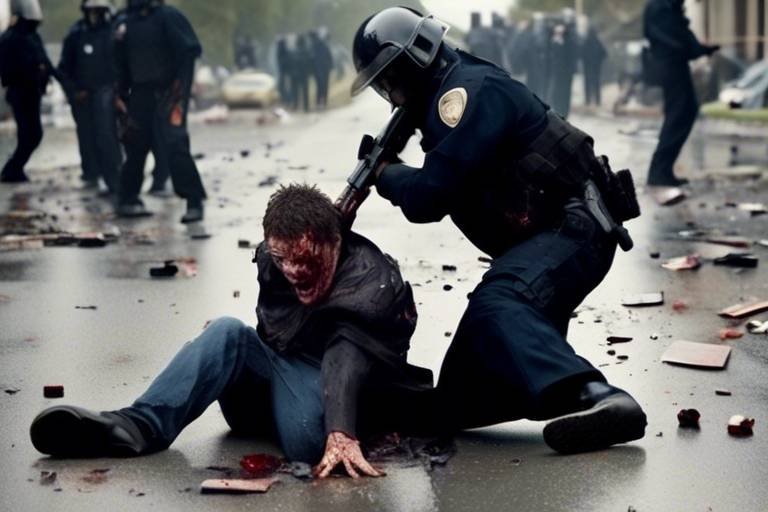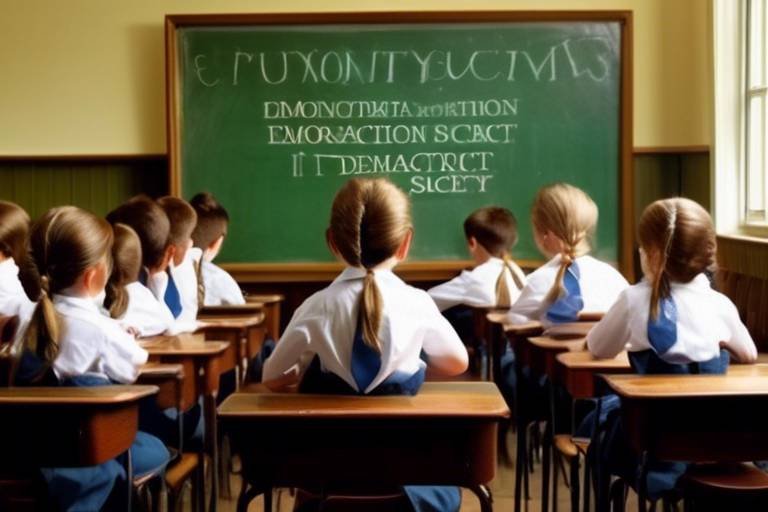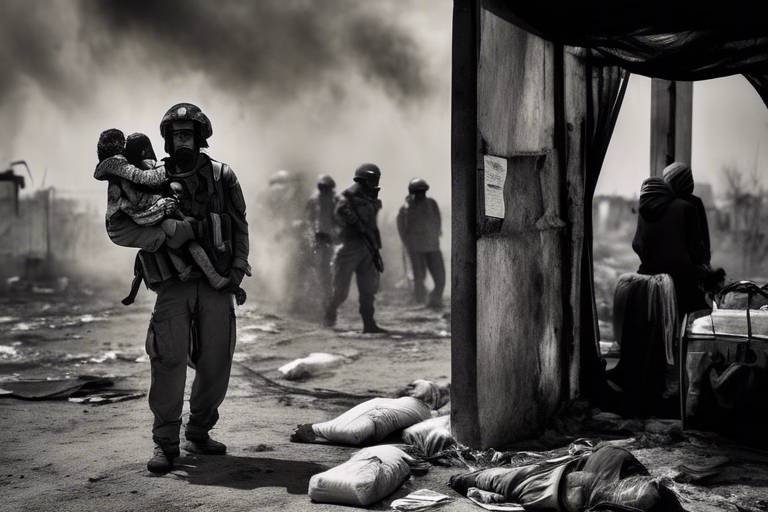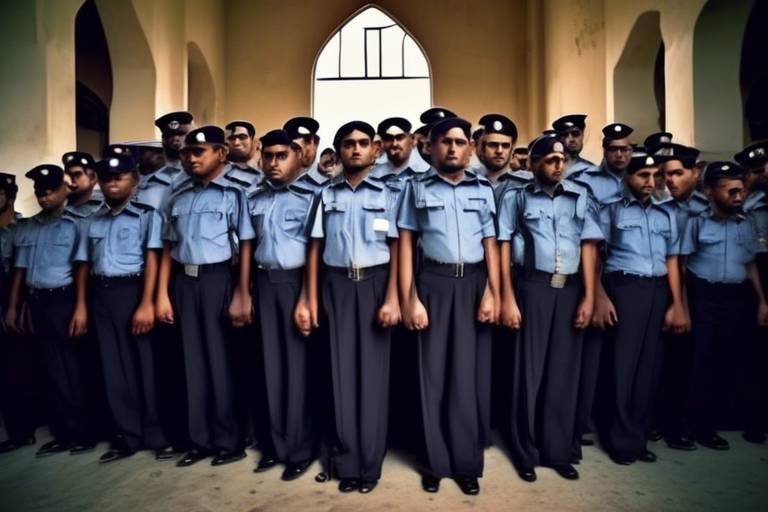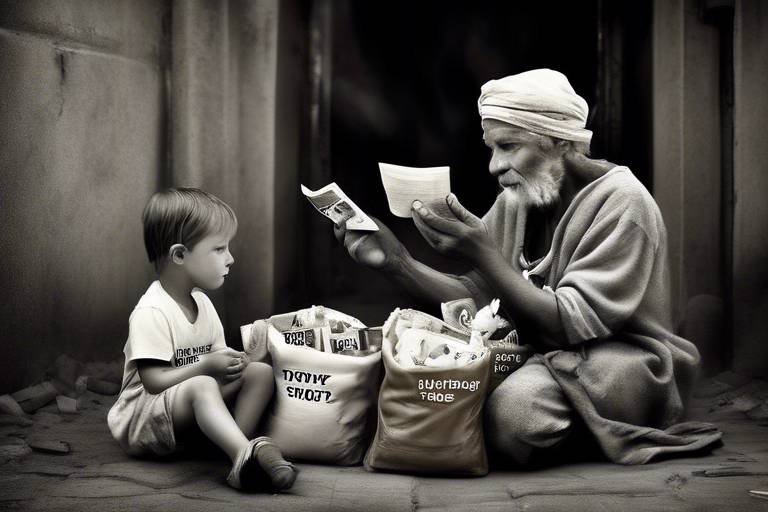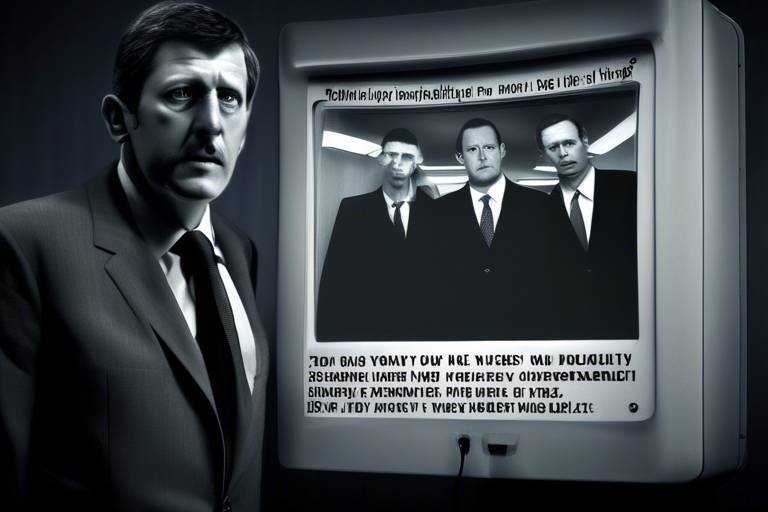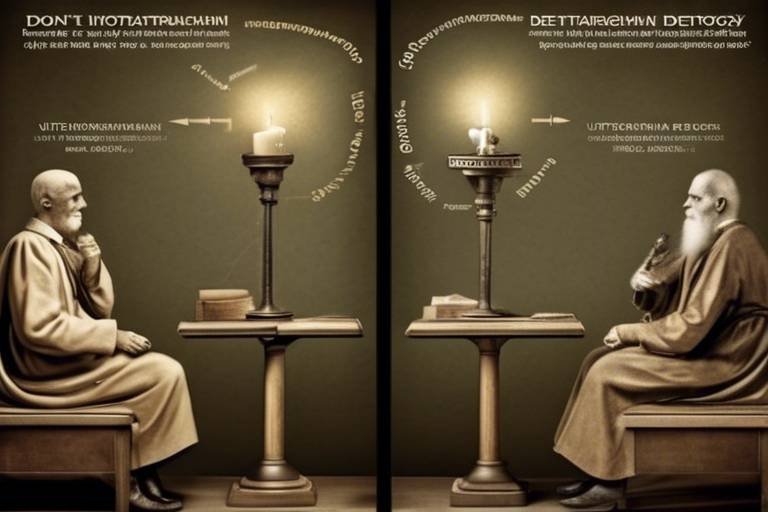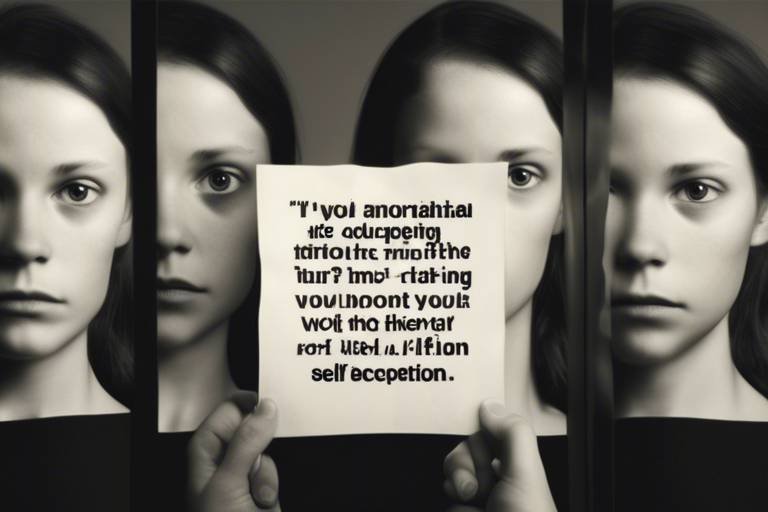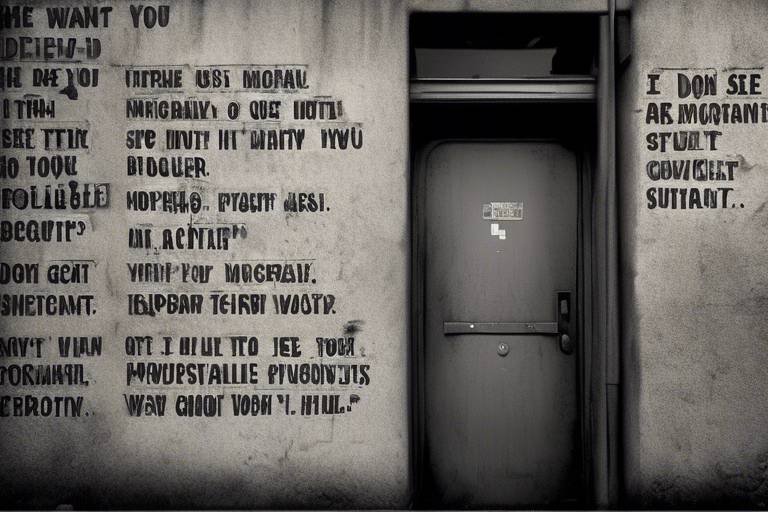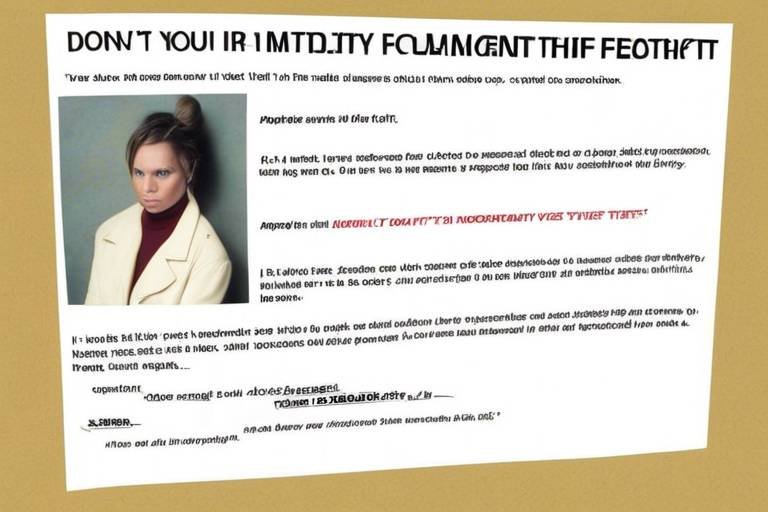Can Acts of Violence Ever be Morally Justified?
When we think about violence, it often conjures images of chaos, destruction, and suffering. But what if I told you that some argue that violence can sometimes be seen as a necessary evil? This question has sparked countless debates among philosophers, historians, and psychologists alike. The moral landscape surrounding violence is intricate, filled with nuances that challenge our perceptions and beliefs. In this article, we will explore whether there are circumstances under which violence can be deemed morally justifiable, diving into philosophical discussions, historical events, and psychological factors that shape our understanding.
To start, let's consider the philosophical debate on violence. Various schools of thought have emerged over the centuries, each presenting compelling arguments for and against the moral justification of violent acts. For instance, utilitarianism posits that actions are justified if they result in the greatest good for the greatest number. This perspective might suggest that violence could be justified if it leads to a significant positive outcome for society. On the flip side, deontological ethics argues that certain actions are intrinsically wrong, regardless of their consequences. This viewpoint maintains that violence can never be morally justified because it violates the inherent rights of individuals.
As we delve deeper, we can’t ignore the historical contexts where violence has been employed for what many perceive as just causes. Throughout history, there have been numerous revolutionary movements where violence was both a tool and a moral dilemma. Take the American Revolution, for instance. The colonists believed they were fighting against tyranny, and their violent actions were framed as a necessary step toward freedom. Conversely, the French Revolution, while also rooted in the pursuit of liberty, spiraled into chaos and violence, raising questions about whether the ends truly justified the means. These case studies reveal how the justification of violence can vary dramatically based on the context and the outcomes.
Another significant aspect to consider is self-defense. This is often cited as a morally acceptable reason for resorting to violence. Imagine you’re in a situation where your life is in danger; would you not fight back? Most people would agree that defending oneself is a natural instinct. However, the ethical considerations surrounding self-defense can be complex. For instance, what if the force used in self-defense is disproportionate? At what point does self-defense become aggression? These questions highlight the fine line between justified violence and moral wrongdoing.
Moreover, psychological factors play a pivotal role in how we perceive violence. Emotions like fear and anger can cloud judgment, leading individuals to justify violent actions in the heat of the moment. When faced with a threat, the fight-or-flight response kicks in, often resulting in immediate, sometimes violent, reactions. This raises an important point: are we morally culpable for actions taken in a state of emotional turmoil? Additionally, societal influences cannot be overlooked. Cultural norms shape our understanding of violence, dictating what is acceptable and what is not. In some societies, violent resistance against oppression is celebrated, while in others, it is condemned. This societal lens significantly impacts individual moral reasoning.
In conclusion, the question of whether acts of violence can ever be morally justified is not straightforward. It encompasses a myriad of philosophical arguments, historical contexts, and psychological influences. As we navigate this complex landscape, it's crucial to engage in open discussions and critically evaluate our beliefs about violence. Are we prepared to accept violence as a tool for justice, or do we believe in absolute non-violence? The answers may vary, but the conversation is essential.
- Is violence ever justified in self-defense? Yes, many argue that self-defense is a morally acceptable reason for violence when one’s life is threatened.
- How do historical events shape our view on justified violence? Historical contexts provide examples of movements where violence was seen as necessary, influencing contemporary perspectives on morality.
- Can emotions justify violent actions? Emotions like fear and anger can lead individuals to rationalize violence, complicating moral judgments.

The Philosophical Debate on Violence
The question of whether violence can ever be morally justified is a complex and contentious issue that has been debated by philosophers for centuries. At its core, this debate often revolves around the tension between ethical theories that prioritize the sanctity of life and those that consider the context and consequences of violent acts. On one hand, we have the deontological perspective, which argues that certain actions are inherently wrong, regardless of the outcomes they produce. This view holds that violence, as a violation of moral laws, is never justified. On the other hand, the consequentialist viewpoint posits that the morality of an action is determined by its outcomes. In this light, violence could be deemed acceptable if it leads to a greater good or prevents a greater harm.
One of the most influential philosophers in this debate is Immanuel Kant, who staunchly advocated for the principle of non-violence. Kant argued that individuals should be treated as ends in themselves, not merely as means to an end. This principle suggests that any act of violence, even in self-defense, could be seen as a violation of this moral imperative. However, Kant also acknowledged the complexity of moral dilemmas, suggesting that while violence is generally impermissible, there may be exceptional circumstances that challenge this view.
Another significant figure in this discussion is John Stuart Mill, who championed utilitarianism. Mill argued that actions should be evaluated based on their consequences, and if violence could lead to a net increase in happiness or well-being, then it could be justified. This perspective opens the door to a more nuanced understanding of violence, suggesting that the context—such as the threat posed by an aggressor—can play a crucial role in moral reasoning. For instance, if a violent act is committed to prevent a greater evil, such as genocide or oppression, it may be seen as morally permissible in the eyes of utilitarianism.
Moreover, the debate extends to the social contract theory, which posits that individuals consent to surrender some freedoms in exchange for protection and order provided by society. According to this theory, when the state fails to protect its citizens, individuals may feel justified in resorting to violence as a means of self-defense or to reclaim their rights. This raises important questions about the legitimacy of state power and the moral justification of rebellion against oppressive regimes.
In summary, the philosophical debate on violence is multifaceted and deeply rooted in ethical theory. While some argue that violence is inherently wrong, others contend that the context and consequences of violent actions can provide a moral justification. As we navigate this complex landscape, it becomes clear that understanding the moral implications of violence requires careful consideration of various philosophical perspectives and the specific circumstances surrounding each act.
- Can violence ever be justified? This depends on the philosophical perspective one adopts. Some argue that it can be justified in certain contexts, such as self-defense or to prevent greater harm.
- What are the main philosophical theories regarding violence? The primary theories include deontological ethics, which opposes violence on principle, and consequentialism, which evaluates actions based on their outcomes.
- How do historical contexts influence our understanding of justified violence? Historical movements, such as revolutions, often provide contexts where violence is perceived as necessary for achieving justice or political change.

Historical Contexts of Justified Violence
Throughout the annals of history, violence has often been employed as a tool for change, sparking intense debates about its moral justification. The notion of justified violence is not merely a contemporary issue; it has roots deep within our past, where individuals and groups have taken up arms in the name of freedom, justice, or survival. Understanding these historical contexts allows us to grasp the complex moral landscape that surrounds the concept of violence. It raises pivotal questions: What makes violence justifiable? Is it the cause, the outcome, or the context that determines its moral standing?
One of the most significant aspects of justified violence lies in revolutionary movements. These movements often emerge in response to oppressive regimes or systems, where peaceful means of protest have failed to bring about change. The moral reasoning behind such violence can be compelling, as revolutionaries argue that they are fighting for the greater good, often at a great personal cost. For instance, the American Revolution and the French Revolution serve as two contrasting case studies that illustrate the complexities of justified violence. While both revolutions aimed to overthrow oppressive rule, the methods and moral justifications varied greatly.
Revolutionary movements are often fueled by a deep sense of injustice. When citizens feel that their rights are being trampled upon, they may resort to violence as a last resort. This raises the question: can violence ever be morally justified when it is used to combat tyranny? The answer is often subjective, shaped by individual beliefs and societal norms. In many cases, revolutionaries believe that their violent actions are necessary to achieve a greater good, whether that be liberty, equality, or justice. However, the aftermath of such violence can lead to unintended consequences, including loss of life, societal instability, and a cycle of violence that can perpetuate the very injustices they sought to eradicate.
The American Revolution is frequently cited as a quintessential example of justified violence. The colonists, feeling oppressed by British rule, argued that their violent actions were a necessary response to tyranny. They believed they were fighting for their rights and freedoms, which they felt were being systematically stripped away. The Declaration of Independence, with its famous assertion that people have the right to "alter or to abolish" any government that becomes destructive, encapsulates this moral framework. The revolutionaries framed their struggle as a fight against oppression, positioning themselves as champions of liberty. Yet, one must consider the moral implications of their actions. Was the violence they inflicted on British soldiers and loyalists justifiable in the pursuit of their ideals?
In contrast, the French Revolution presents a more complex picture of justified violence. While it began with the noble ideals of liberty, equality, and fraternity, the revolution quickly spiraled into chaos and bloodshed. The Reign of Terror, a period marked by extreme violence and political purges, raises significant moral questions. Revolutionaries justified their violent actions as necessary to protect the revolution from perceived enemies. However, the sheer scale of violence and the loss of innocent lives led many to question whether such actions could ever be morally justified. The French Revolution serves as a cautionary tale about the potential for noble causes to be overshadowed by the brutality of their means.
In both cases, the historical contexts of justified violence reveal the intricacies of moral reasoning. While some may argue that the ends justify the means, others contend that violence can never be truly justified, regardless of the circumstances. This ongoing debate emphasizes the need for critical reflection on the moral implications of violence in any context.
- What is justified violence? Justified violence refers to the use of force that some believe is acceptable under certain circumstances, often in the pursuit of a greater good or in response to oppression.
- Are there moral frameworks that support justified violence? Yes, various philosophical theories, including utilitarianism and just war theory, provide frameworks for understanding when violence may be considered morally permissible.
- How do historical contexts influence perceptions of justified violence? Historical events shape societal norms and beliefs, impacting how individuals and groups perceive the morality of violence in specific situations.
- Can violence ever be justified in self-defense? Many people believe that violence used in self-defense is morally justified, provided it meets certain ethical criteria, such as proportionality and necessity.

Revolutionary Movements
Revolutionary movements have always been a double-edged sword in the realm of ethics and morality. On one hand, they are often fueled by a deep-seated desire for change, justice, and freedom; on the other hand, they frequently resort to violence as a means to achieve their goals. This raises a critical question: can violence ever be justified in the pursuit of a greater good? The answer isn't black and white, and it varies greatly depending on the context, the actors involved, and the outcomes of such actions.
Throughout history, revolutionary movements have emerged in response to oppression, tyranny, and injustice. These movements often frame their violent acts as necessary evils, arguing that the end justifies the means. For instance, the American Revolution was characterized by a struggle against British colonial rule, where the colonists believed that violent resistance was essential to secure their rights and liberties. Similarly, the French Revolution was marked by radical changes and intense social upheaval, where revolutionaries felt justified in using violence to dismantle an oppressive regime.
When examining revolutionary movements, it's essential to consider the following factors that contribute to the moral justification of violence:
- Oppression: When a government or ruling body systematically oppresses its people, the argument for violence as a means of resistance becomes stronger.
- Desperation: In situations where peaceful means of change have been exhausted, individuals may feel that violence is their only option.
- Collective Identity: A shared sense of injustice among a group can galvanize support for violent actions, as individuals rally around a common cause.
However, the morality of revolutionary violence is often contested. Critics argue that resorting to violence can lead to a cycle of retaliation and further suffering, undermining the very goals that revolutionaries seek to achieve. For instance, while the American Revolution resulted in the establishment of a new nation, it also set a precedent for future conflicts and violence in the name of freedom. Similarly, the French Revolution, although initially aimed at social justice, descended into chaos and terror, raising questions about the true cost of such violence.
In conclusion, while revolutionary movements may present compelling arguments for the justification of violence, the ethical implications are complex and multifaceted. The outcomes of these movements can vary significantly, and the moral landscape surrounding them remains a contentious issue. As we reflect on these historical examples, it becomes clear that the justification of violence in revolutionary contexts is not merely a matter of right or wrong but rather a nuanced debate that invites us to consider the broader implications of our actions.
- What is a revolutionary movement? A revolutionary movement is a collective effort by a group of people to overthrow an existing government or social order in favor of a new system, often through radical changes.
- Can violence ever be justified in revolutionary movements? This is a complex question. While some argue that violence may be necessary to achieve justice, others believe that it can lead to more harm than good.
- What are some historical examples of justified violence? Notable examples include the American Revolution and the French Revolution, where violence was employed to challenge oppressive regimes.

Case Study: The American Revolution
The American Revolution, which took place from 1775 to 1783, is a compelling case study in the moral justification of violence. At its core, this conflict was driven by the colonists' desire for independence from British rule, which they perceived as oppressive and unjust. The philosophical underpinnings of this revolution were rooted in Enlightenment ideals, which emphasized individual rights, liberty, and the social contract. The colonists believed that when a government becomes destructive to these ends, it is not only their right but their duty to throw off such government. This belief led to the widespread acceptance of violence as a necessary means to achieve political change.
Throughout the revolution, the colonists engaged in various acts of violence, ranging from protests and riots to full-scale battles. Key events, such as the Boston Tea Party and the battles of Lexington and Concord, exemplified this shift from peaceful protest to violent resistance. The colonists argued that their violent actions were justified responses to British tyranny, particularly in light of oppressive taxes and lack of representation in Parliament. The rallying cry of "no taxation without representation" became a powerful slogan that encapsulated their grievances and moral justification for rebellion.
Interestingly, the revolutionaries employed a range of ethical frameworks to justify their violent actions. For instance, they often referenced natural rights philosophy, which posits that individuals have inherent rights that must be protected. This perspective allowed them to frame their struggle as a fight not just for independence, but for the preservation of fundamental human rights. Moreover, the concept of just war theory played a significant role in their justification. This theory asserts that violence can be morally permissible under certain conditions, such as when it is a last resort and aimed at achieving a just cause.
However, the moral justification of violence during the American Revolution is not without its complexities. Critics argue that the revolutionaries' violent actions led to significant suffering and loss of life, raising questions about whether the ends truly justified the means. The moral dilemmas faced by the revolutionaries are evident in the contrasting views of loyalists, who believed that the violence perpetrated by the colonists was unwarranted and destructive. This division highlights the subjective nature of moral reasoning in the context of violence, as different perspectives can lead to vastly different conclusions about what is justified.
Ultimately, the American Revolution serves as a powerful example of how violence can be framed as morally justified in the pursuit of political change. The outcomes of the revolution—establishing a new nation founded on principles of liberty and democracy—are often cited as evidence that the violent struggle was warranted. However, the ethical implications of such violence continue to spark debate, reminding us that the morality of violence is a complex and multifaceted issue.

Case Study: The French Revolution
The French Revolution, which began in 1789, is often cited as a pivotal moment in history where violence was employed in the name of liberty, equality, and fraternity. But was this violence truly justified? To understand the moral implications, we must delve into the chaotic atmosphere of the time, where the common people, suffering under an oppressive regime, sought drastic changes. The revolution was fueled by widespread discontent with social inequality and the heavy taxation imposed by the monarchy. This discontent culminated in a series of violent uprisings, including the infamous storming of the Bastille, which symbolized the uprising against tyranny.
As the revolution progressed, the initial ideals of the revolutionaries began to clash with the harsh realities of implementing change. The moral justification for violence became a contentious issue. On one hand, the revolutionaries believed they were fighting against a corrupt system that had long oppressed the populace. They viewed their violent actions as necessary for the greater good, a means to an end. On the other hand, the violence soon spiraled out of control, leading to the Reign of Terror, where thousands were executed under suspicion of counter-revolutionary activities. This period raises significant ethical questions about the extent to which violence can be justified in the pursuit of political and social change.
To better understand the moral reasoning behind the violence of the French Revolution, we can look at the motivations of the key figures involved. Leaders like Maximilien Robespierre argued that the revolution was a fight for justice, and that violent measures were sometimes necessary to protect the revolution from its enemies. However, the question remains: at what point does the pursuit of justice become a justification for tyranny? The revolutionaries faced a moral dilemma, as their initial noble intentions became overshadowed by the bloodshed that ensued.
In examining the outcomes of the French Revolution, we can see that while it did lead to the establishment of a republic and the eventual rise of democratic ideals, the violent methods employed left a lasting scar on the French society. The revolution's legacy is a complex tapestry of triumph and tragedy, forcing us to grapple with the uncomfortable truth that violence, even when justified in the eyes of some, can lead to unforeseen consequences that may betray the very ideals it sought to uphold.
In conclusion, the French Revolution serves as a powerful case study in the moral justification of violence. It challenges us to reflect on the fine line between liberation and oppression, and to consider the ethical implications of our actions in the face of injustice. Can violence ever truly be justified, or does it ultimately undermine the very principles it aims to achieve? The answer may be as complex as the revolution itself.
- What were the main causes of the French Revolution?
The main causes included social inequality, economic hardship, and the influence of Enlightenment ideas that promoted liberty and equality.
- Was the violence during the French Revolution justified?
This is a debated topic. While some argue it was necessary to overthrow an oppressive regime, others believe it led to unnecessary bloodshed and tyranny.
- What impact did the French Revolution have on modern democracy?
The French Revolution significantly influenced democratic movements worldwide by promoting ideas of citizenship, rights, and the importance of popular sovereignty.

Self-Defense and Violence
When we think about violence, one of the first scenarios that often comes to mind is self-defense. It's a concept that resonates with many because it taps into our instinctual desire to protect ourselves and our loved ones. But the question remains: when does self-defense cross the line from being a justified reaction to becoming an act of violence that society condemns? This is a complex issue that involves not just the act itself but also the context in which it occurs.
Self-defense is often viewed through a legal lens, where laws vary significantly from one jurisdiction to another. Generally, the principle of self-defense allows individuals to use reasonable force to protect themselves from imminent harm. However, what constitutes “reasonable” can be highly subjective. For instance, if someone is threatened with a punch, can they respond with lethal force? This ambiguity leads to heated debates in courtrooms and communities alike.
To further understand this, we can break down the conditions under which self-defense is typically considered justified:
- Immediacy of Threat: The threat must be immediate and unavoidable. If someone is simply yelling at you, responding with violence is not justified.
- Proportionality: The level of force used in self-defense must be proportional to the threat faced. Using a weapon against an unarmed assailant is often viewed as excessive.
- Unavoidability: The individual must have no reasonable means of escape or retreat. If there's a clear path to safety, the justification for using violence diminishes.
This framework highlights the delicate balance between protecting oneself and resorting to violence. It raises an important question: can a person who acts out of fear truly be held morally accountable for their actions? Many psychologists argue that fear can cloud judgment, leading individuals to perceive threats that may not exist or to overreact to perceived dangers.
Moreover, the psychological impacts of violence cannot be ignored. Individuals who experience a violent encounter, even in self-defense, may suffer from long-term trauma. This psychological fallout can create a cycle of violence, where the victim becomes a perpetrator in a bid to reclaim their sense of safety. Thus, the implications of self-defense extend far beyond the immediate situation, affecting mental health, relationships, and community dynamics.
In a broader societal context, the justification of self-defense can also be influenced by cultural norms. In some cultures, a strong emphasis on masculinity and honor may lead individuals to feel compelled to respond violently to perceived threats, even in situations where self-defense might not be warranted. This cultural backdrop can create environments where violence is not only accepted but expected, complicating the moral landscape surrounding self-defense.
Ultimately, the morality of self-defense is a nuanced issue that encompasses legal definitions, psychological realities, and cultural influences. It's essential to engage in open dialogues about these complexities to foster a deeper understanding of when violence can be deemed justifiable. As we navigate this challenging terrain, we must ask ourselves: in the pursuit of self-protection, how far are we willing to go, and at what cost?
- Is self-defense always legally justified? No, the legality of self-defense varies by jurisdiction and depends on the circumstances surrounding the incident.
- Can emotional state affect the justification of self-defense? Yes, fear and panic can influence a person's perception of threat, potentially affecting their response.
- What are the consequences of using excessive force in self-defense? Using excessive force can lead to legal repercussions, including criminal charges and civil lawsuits.

The Role of Psychological Factors
The complex interplay between psychological factors and the justification of violence is a fascinating area of study. At its core, our understanding of violence is often influenced by our emotions, past experiences, and societal conditioning. Imagine for a moment that you’re in a dark alley, and you hear footsteps behind you. Your heart races, and your mind races even faster, conjuring up worst-case scenarios. In such moments, fear can drive individuals to consider violence as a viable option for self-preservation. But is that really justified?
Emotional responses, particularly fear and anger, can cloud our judgment and lead us to rationalize violent actions. When faced with a perceived threat, the instinctive fight-or-flight response kicks in, often pushing individuals toward aggressive behaviors. This reaction can be understood as a survival mechanism, deeply rooted in our evolutionary past. However, the question remains: does a primal instinct justify violent actions in modern society? This is where the moral landscape becomes murky, as what one person sees as self-defense, another might view as aggression.
Moreover, societal influences play a pivotal role in shaping our perceptions of violence. Cultural norms and collective beliefs can create a framework within which violence is sometimes deemed acceptable. For instance, in some societies, acts of violence in defense of honor or family are often celebrated rather than condemned. This raises an important point: the moral justification of violence can vary significantly across different cultures and contexts. To illustrate this, consider the following table that summarizes how different cultures perceive violence:
| Culture | View on Violence | Examples |
|---|---|---|
| Western Society | Generally condemns violence except in self-defense | Legal frameworks protecting individuals |
| Honor-Based Cultures | Violence may be justified to protect honor | Honor killings, duels |
| Revolutionary Contexts | Violence seen as a necessary means for change | Revolutions, uprisings |
In addition to societal influences, personal trauma can significantly impact an individual's propensity to justify violence. Those who have experienced violence firsthand may develop a skewed perception of its necessity. For instance, a person who has been a victim of bullying might feel that violent retaliation is the only way to regain control or respect. This cycle of trauma and violence can perpetuate a mindset where aggression is viewed as an acceptable response.
Ultimately, the justification of violence is not a black-and-white issue; it exists in shades of gray. Psychological factors, including emotional responses and societal influences, contribute to how individuals rationalize their actions. As we delve deeper into the moral implications of violence, it's crucial to consider these psychological elements, as they can provide insight into why individuals might resort to violence even when it conflicts with societal norms.
- Can violence ever be justified? - The justification of violence is subjective and varies based on personal beliefs, cultural norms, and situational contexts.
- What role do emotions play in violent actions? - Emotions such as fear and anger can lead individuals to perceive violence as a necessary response to threats.
- How does society influence our views on violence? - Cultural norms and collective beliefs shape our understanding of when violence is acceptable or unacceptable.
- Can trauma affect one's justification of violence? - Yes, personal trauma can skew an individual's perception, making them more likely to justify violent actions.

Emotional Responses to Threat
When faced with a threat, our emotional responses can often dictate our actions, sometimes leading us down a path of violence. The human brain is wired to react instinctively to danger; this is a survival mechanism that has evolved over millennia. Imagine walking in a dark alley and suddenly hearing footsteps behind you. Your heart races, your palms sweat, and your mind races through possible scenarios. In such moments, fear can be a powerful motivator, pushing individuals to act in self-defense, even if that means resorting to violence.
Fear, in particular, can cloud judgment and amplify the perception of danger. It’s not just about the physical threat; it’s also about the emotional weight that accompanies it. When someone feels threatened, their body releases stress hormones like adrenaline and cortisol, which prepare them for a fight-or-flight response. This physiological reaction can lead to a cascade of emotions, including anger and anxiety, which may further fuel the justification for violent actions. For instance, if someone believes they are in imminent danger, their emotional state may lead them to see violence as the only viable option for protection.
Another significant emotional factor is anger. When individuals feel wronged or attacked, anger can ignite a fierce desire for retribution. This emotional response can lead to a justification of violence, as the individual may feel that they are defending their honor or righting a perceived wrong. In many cases, this sense of injustice can escalate quickly, creating a cycle where one act of violence begets another. It’s essential to recognize that these emotional responses are not always rational; they are often driven by deep-seated feelings and societal conditioning.
Moreover, trauma plays a crucial role in shaping how individuals respond to threats. Those who have experienced violence in their lives may react more aggressively when faced with similar situations, seeing violence as a necessary means of self-preservation. This is particularly evident in communities that have been historically marginalized or oppressed, where violence may be viewed as an acceptable response to systemic injustices. The emotional scars left by past experiences can create a lens through which current threats are perceived, often amplifying the justification for violent reactions.
In summary, emotional responses to threats are complex and multifaceted. They can drive individuals to perceive violence as a justified response, influenced by fear, anger, and past trauma. Understanding these emotional undercurrents is crucial in addressing the broader implications of violence in society. By unpacking the psychology behind these reactions, we can work towards more peaceful resolutions to conflicts, fostering a culture that prioritizes dialogue over violence.
- What triggers emotional responses to threats? Emotional responses are triggered by perceived dangers, which can be physical or psychological. Fear and anger are common reactions that can lead to violence.
- Can past trauma influence reactions to threats? Yes, individuals with a history of trauma may respond more aggressively when they feel threatened, as their past experiences shape their perceptions of danger.
- Is violence always justifiable in self-defense? While many believe self-defense can justify violence, the context and circumstances surrounding each situation must be considered to determine moral justification.

Societal Influence on Justification
When we think about violence, it's hard to ignore the power of society in shaping our views on what is justified. Society acts like a mirror, reflecting back our values, beliefs, and norms. But what happens when those reflections distort reality? In many cases, the collective mindset of a community can lead individuals to perceive violence as a necessary or even noble action. This can be seen in various cultural contexts where violence is not only accepted but celebrated.
For instance, consider how different societies view acts of rebellion. In some cultures, violent uprisings against oppressive regimes are seen as heroic. In others, they may be viewed as anarchic and disruptive. This duality raises the question: What role does societal approval play in justifying violence? When the community rallies around a cause, it can create a sense of legitimacy around violent actions. This is often fueled by shared narratives and historical contexts that glorify past struggles, making it easier for individuals to align their actions with the greater good.
Moreover, societal influence extends beyond just approval. It also encompasses the emotional climate of a community. When fear or anger permeates a society—be it from external threats or internal strife—individuals may feel compelled to act violently in defense of their group. Take, for example, the rise of mob mentality during times of crisis. People often justify violent actions by claiming they are acting in the name of their community's safety or honor. This phenomenon shows how easily societal emotions can override individual moral reasoning.
Additionally, the portrayal of violence in media plays a significant role in shaping societal attitudes. Movies, news reports, and social media often sensationalize violent acts, creating a narrative that can normalize aggression. When violence is depicted as a solution to problems, it can influence public perception, making it seem like a viable option in real-life situations. This is particularly evident in discussions surrounding gun control and self-defense laws, where media framing can sway public opinion on whether violence is justified.
In summary, societal influence is a powerful force in the justification of violence. It shapes our beliefs, fuels our emotions, and impacts how we perceive actions taken in the name of justice or defense. Understanding this influence is crucial for anyone trying to navigate the complex moral landscape surrounding violence. As we delve deeper into the implications of these societal norms, we must ask ourselves: How can we cultivate a society that promotes peace rather than violence?
- Can violence ever be justified? The justification of violence often depends on the context, societal norms, and individual perspectives.
- What role does culture play in justifying violence? Culture can deeply influence perceptions of violence, with some societies viewing it as acceptable in specific situations.
- How do emotions impact decisions related to violence? Emotions like fear and anger can drive individuals to justify violent actions as necessary responses to threats.
- Is self-defense a universally accepted justification for violence? While many view self-defense as justifiable, the specifics can vary greatly depending on legal and cultural contexts.
Frequently Asked Questions
- Can violence ever be morally justified?
This is a complex question that has been debated by philosophers for centuries. While some argue that violence can be justified in cases like self-defense or revolutionary movements, others believe that it is never acceptable. The moral justification often depends on the context and the perceived outcomes of the violent actions.
- What are some historical examples of justified violence?
Throughout history, there have been numerous instances where violence was deemed justifiable. For example, the American Revolution is often cited as a case where colonists used violence to fight against British oppression. Similarly, the French Revolution showcased a different perspective on justified violence, where the revolutionaries faced moral dilemmas regarding their violent methods.
- How does self-defense relate to the justification of violence?
Self-defense is commonly accepted as a morally justifiable reason for using violence. The key factor here is the immediate threat to one's safety. If someone feels their life is in danger, many argue that responding with violence is not only acceptable but necessary to protect oneself.
- What role do psychological factors play in justifying violence?
Psychological factors, such as fear and anger, can significantly influence an individual's perception of violence. In threatening situations, these emotions may lead someone to believe that violent actions are justified. Additionally, societal influences and cultural norms can shape how individuals rationalize their violent responses.
- Are there ethical frameworks that support justified violence?
Yes, various ethical frameworks exist that can support the justification of violence. For instance, utilitarianism might argue that if the outcome of violent actions leads to greater overall good, then it could be considered morally acceptable. However, these frameworks often require careful consideration of the consequences and motivations behind the violence.

